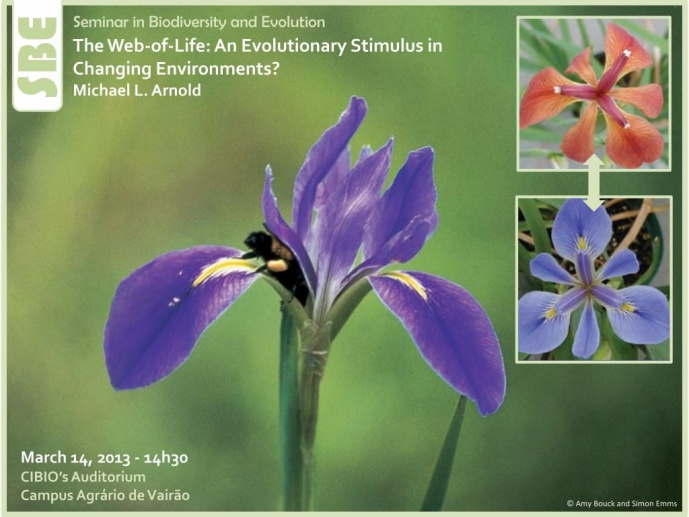THE WEB-OF-LIFE: AN EVOLUTIONARY STIMULUS IN CHANGING ENVIRONMENTS?


That natural hybridization has played an important role in many clades in terms of both genomic and organismal evolution is now well established. Sexual reproduction involving individuals from divergent evolutionary lineages can result in small- or large-scale genomic reorganization (e.g. gene silencing, multiplication of repetitive elements), adaptive trait transfer (or origin), hybrid speciation and adaptive radiations. Furthermore, the evolutionary outcomes from natural hybridization are expected to be rapid because the effect from combining genomes from divergent lineages mimics a large-scale mutation event in which many unique genotypes are produced simultaneously. Thus, evolutionary events resulting from hybridization should occur over a short time-span due to the production of extreme genotypic and phenotypic novelty upon which natural selection can then act.
Mike Arnold, Distinguished Research Professor of Genetics at the University of Georgia, has concentrated his research work in the area of evolutionary genetics, particularly the study of natural hybridization. Mike has championed the view of hybridization as a critical evolutionary process in both plants and animals, and his group has collected a wealth of empirical data demonstrating that hybridization can be widespread. Through breeding experiments, ecological studies and genomic analyses, Mike’s students and postdocs (and even occasionally, Mike himself) have demonstrated that hybridization often leads to significant gene exchange between closely related species. Mike is particularly well known for his study of Louisiana Irises, which have become a classic example of the role of hybridization in adaptive evolution and speciation. Mike is the author of three books and more than 125 academic articles.
[PI: Paulo Célio Alves, Conservation Genetics and Wildlife Management]
Image credits: Amy Bouck and Simon Emms